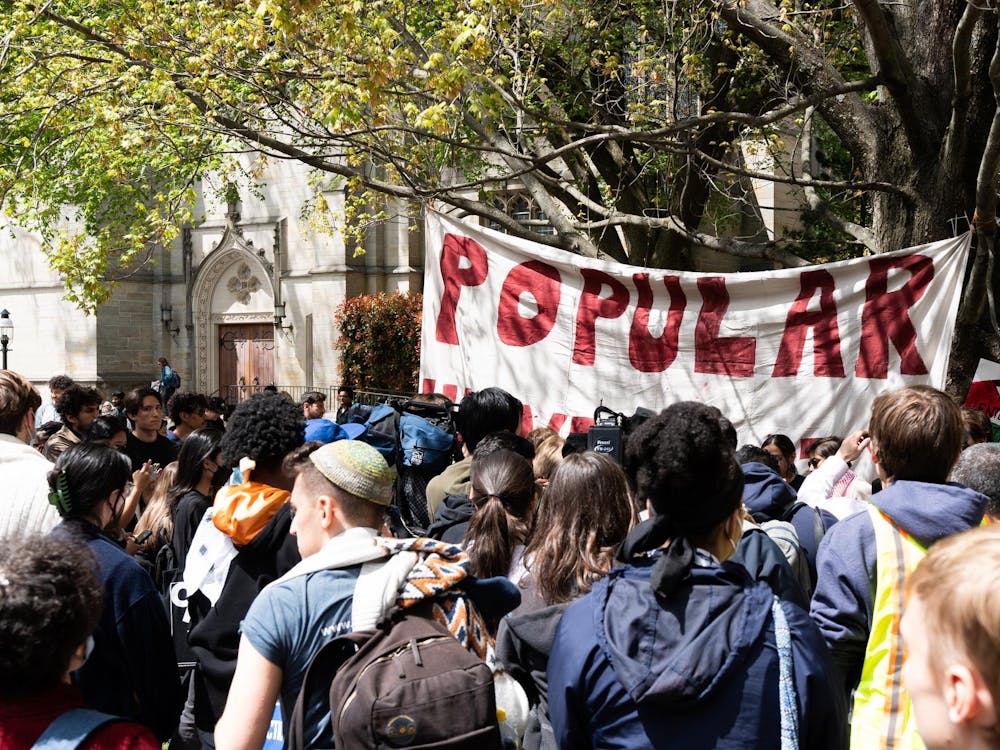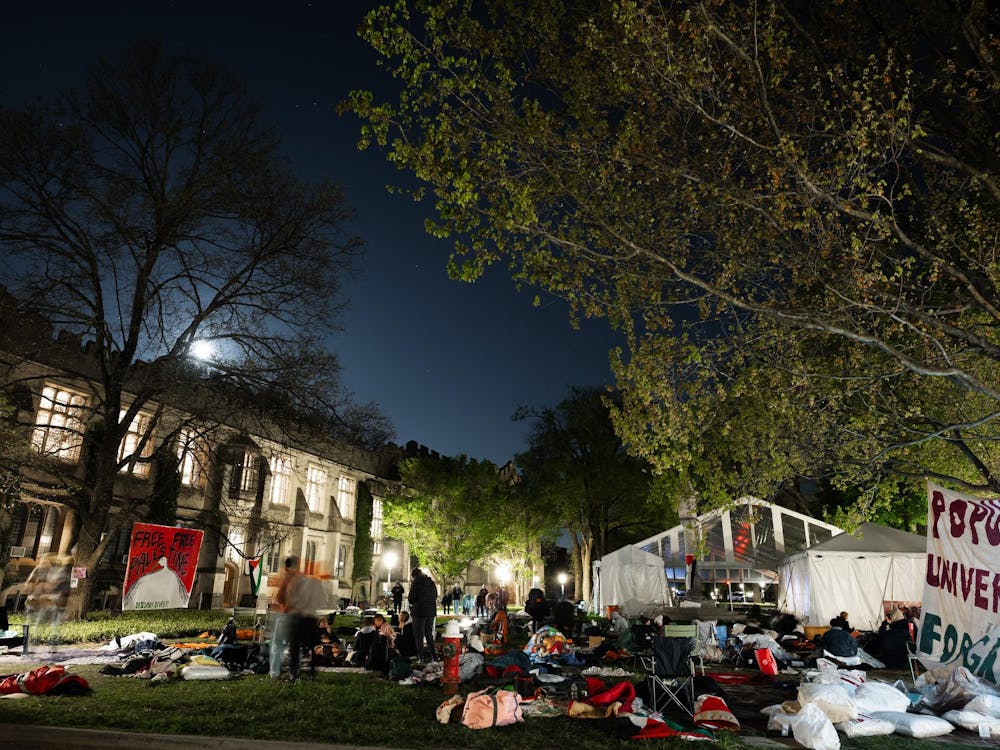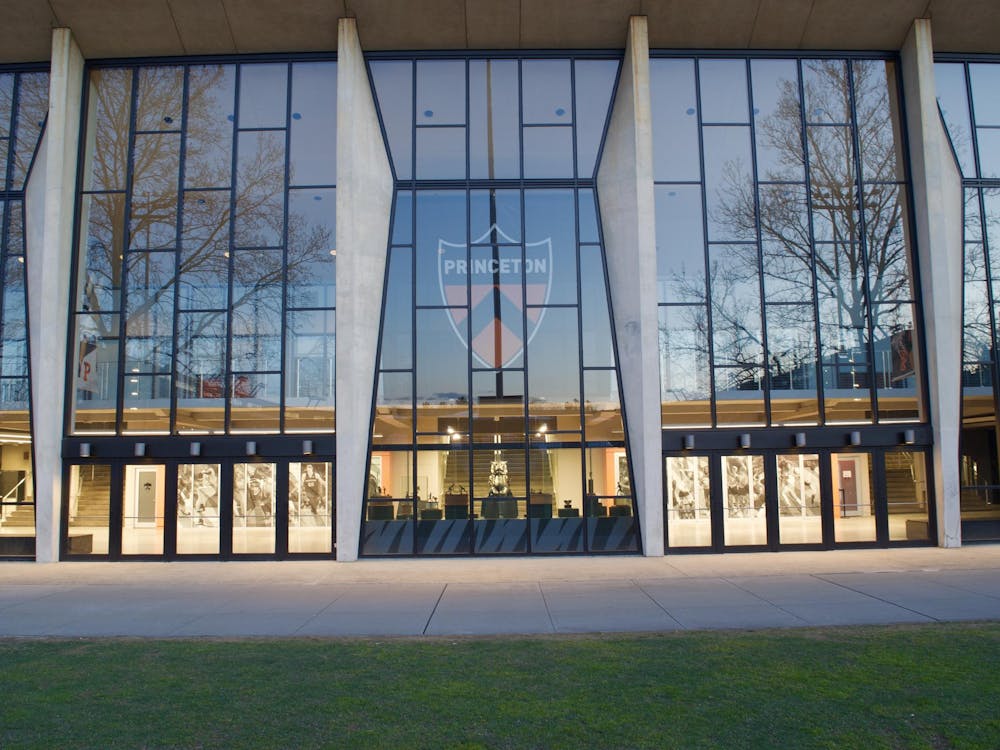“I do not see any other solution to the Palestine-Israeli conflict other than an independent, sovereign, viable, contiguous Palestinian state – and when I say sovereign I mean a state that will enjoy all attributes of sovereignty,” Ambassador Maen Rashid Areikat, chief representative of the Palestinian Liberation Organization to the United States, said in a lecture on Tuesday.
During the lecture, Areikat gave an overarching view of his position as a major Palestinian diplomat, offering a variety of reasons as to why a two-state solution is not just the best answer for Israel and Palestine – it is the only one.
Areikat referenced the existing state of affairs with the Israeli occupation of Palestine, which has grown even tighter as a result of what he refers to as “the most extreme right-wing government in the history of Israel.”
According to Areikat, the growing number of legal Israeli settlements within Palestine is an indication that pulling out of Palestine is not on the Israeli government's agenda.
"You can see it with your own eyes,” Areikat said.
The ambassador described in greater detail what the terms of the proposed two-state solution would be in order for Palestine to be able to obtain its own legitimate autonomy.
“The reason in the past that our people had refused Israeli offers was because Israel wanted to continue to control the Palestinian people even after they [the Palestinians] established their own Palestinian state,” Areikat explained, “That’s why all the negotiations have failed – because Israel did not want the Palestinians to have sovereignty of the Palestinian state.
Areikat listed some of the terms of a two-state solution including no presence of the Israeli military in the future Palestinian state, no control of air space or international checking points and no control of local or natural resources.
He explained that the question now is not so much whether Israeli Prime Minister Benjamin Netanyahu will support the Palestinian state – rather, it is what kind of Palestinian state Netanyahu would potentially approve of that is at odds with Palestinians' own wishes.
“Imagine the occupiers turning into peacekeepers after nearly 50 years," Areikat added. "They [the Israelis] want the Palestinians to accept the presence of the Israeli military occupation as peacekeeping forces to protect the security of Israel,” he said.
Areikat admitted that this dilemma has convinced some Palestinians to abandon the notion of their own state and instead to promote a binational state between Israelis and Palestinians. To him, however, the historical and current troubles facing those Palestinians living in Israel strongly persuade him that he is fighting for the right decision. He explained that Palestinians who remain in Israel are, even in modern times, struggling to secure social justice. These Palestinians, he explained, are not treated as equal to Israelis.
“If we want to create on binational state, we would only turn the conflict from a political one into a struggle for equality and social justice," he explained. "That would completely shift the paradigm and could make many countries around the world lose interest in this conflict to end an occupation.”
Areikat further noted that a binational state is an unreasonable solution because of what he claimed is Israel’s desire to limit the population of Palestinians in the country and especially to prevent the roughly four million Palestinians from becoming Israeli citizens.
During the lecture, Areikat also attempted to clarify an incident in 2011 in which his calls for separation between Israel and Palestine came under critical attack and harsh scrutiny.
Areikat explained that in 2011 that he was accused by both Palestinians and Israelis for supporting “population transfer” between the Jews in Palestine or the Palestinians in Israel. He noted that some activist groups and media outlets went so far as to condemn him for tacitly supporting ethnic cleansing in Israel.
He explained that he had only wanted to convey how important it was to have two autonomous states between Israel and Palestine. According to Areikat, the Israeli military occupation must end to allow the Palestinian people to establish their own state.
“We [Palestinians] believe that we have better chances now as an occupied people fighting occupation and oppression to obtain freedom and independence by creating our own state,” he said.
Areikat’s lecture titled “One State or Two States?” was open to the public and took place in Dodds Auditorium of Robertson Hall at 4:30 p.m. The talk, as a part of the “Conversations About Peace” lecture series, was co-sponsored by the Mamdouha S. Bobst Center for Peace and Justice and the Wilson School.







